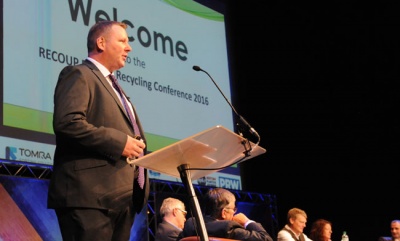Fragmented industry message slowing effective response to recycling issues says RECOUP
Fragmented messages and political calls from a growing industry are hindering moves to take proper action against big recycling issues, according to plastics recycling body RECOUP.
The claim comes from Stuart Foster, CEO RECOUP, who has called for greater cross-sector collaboration to tackle some of the major questions affecting the future of plastics recycling.

Trade media, and often national press, tends to be awash with comments from companies and associations in the build-up and aftermath of political and industrial events like this month’s general election. RECOUP, which represents a wide range of members from the plastics supply chain and works to promote and increase the levels of plastics recycling within the UK, suggests that by combining efforts this desire to see change and new, innovative programmes to improve recycling and resource use could be more readily enacted.
Foster continued: “We will continue to engage with the whole of the plastics supply chain with these issues and we are keen to keep the debate alive to advance plastics recycling and resource efficiency.”
Dr Helene Roberts, Group Marketing and Innovations Director at food packaging company and RECOUP member LINPAC, added: “Today, individual business can do much to innovate their products and services to make recycling easier and promote packaging as a valuable resource… [but] a joined-up approach, in which we see collaboration between business, industry, local government and education of the consumer, is now key to growing a deeper understanding of plastics recycling sector challenges.
“To make a circular economy a reality in the future, every link in the chain needs to be committed to coming together to make a meaningful change and develop end markets for recycled materials.”
RECOUP says that it is trying to assist with building cross-sector collaboration at its annual conference in September, where topics like collections, design, supply chains and behaviour change will be addressed.

RECOUP says that the debate around ocean plastics has been made into the ‘elephant in the room’ of plastic material management, but admits that the challenge is now how to engage in a positive way and have a rounded debate and understanding of all the issues.
Paul Vanston, who took over as CEO of packaging association INCPEN last month, says: “Ocean plastics, recyclability, recycled content, polymer rationalisation, composites, collection and capture – a multitude of issues that, when put together, are seriously challenging our whole value chain to arrive at collaborative answers. Regulatory frameworks in the UK and Europe are set to change. Uncertainty is rife for us all: so how do we move forward together?” 











